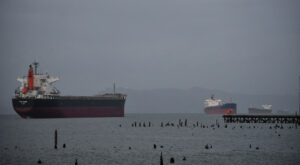Hundreds of vessels were passing Brazil’s north east coast last summer. For maritime authorities tackling an oil spill in the vicinity it was easier finding a needle in a haystack in so far as identifying the villain.
With a major disaster impacting dozens of coastal communities as an oil slick drifted south, the pressure was on to explain who caused it. A challenge hampered further by tankers tuning off their locator transponders to evade detection moving oil to Venezuela. Masters of dark ships are hardly going to hold their hand up when they spill some.
Enter the emergency responders, pollution investigators, state prosecutors, civil litigators, politicians …and commentators.
A stream of conflicting sources. In what would seem a rush to judgement, analysts of every kind drew on incomplete data from various sources (satellite images, AIS data, oil market data and others) to point the finger and single-out the supposedly guilty vessel.
Experts, academics …thought-leaders join the blame game, and social media – mostly Twitter – streams ahead with activists and public jumping aboard.
Only the snag is, the tanker that one Brazilian academic pins the blame on was 9000 miles away at the time in question. Another blamed tanker is in the right area, but not carrying remotely the type of oil in question. Still another blamed vessel discharged the same amount of cargo it loaded weeks earlier after an uneventful voyage.
Quick to judge, quick to anger, slow to understand – a borrowed line at its most apt, for this was a witch-hunt for cyber ships that pass in the night, with data and reporting challenged on all sides.
When we were alerted by a P&I club in November, it wasn’t the oil spill incident, or indeed the vessel it was concerned about. It was a baseless allegation at the centre of a media storm in a cacophony of background noise.
A name at odds with conflicting data: another vessel with the same name, lousy documentation, an altered ID number? Who knows…? This was the fog we were navigating.

A Brazilian Federal Senate hearing was speculating that the tanker in question was involved in the oil spill. It had heard from experts, and incomplete evidence was presented by Laboratório de Análise e Processamento de Imagens de Satélites. This evidence documented the first appearance of an oil slick off the coast of Brazil on 19 July (contested by the Brazilian Navy), blaming a tanker on the other side of the world for the spill.
We monitored the media extensively and set about a corrective strategy. Principally, a media statement to refute what were false allegations based on incomplete evidence. We mobilised our network partner in São Paulo who had the team there target Brazilian news editors, broadcast outlets and social media platforms. This regained some balance in the story – crucially adding our voice in the narrative.
But what would have real impact was a statement issued (responding to ours) by the Brazilian Navy, agreeing with us on the tanker’s timeline – the vessel not being anywhere near this oil spill incident.
The location of the vessel was confirmed by visual satellite imagery, port documentation and statements by local agents.
The flag state further cleared the tanker, confirming her location by Pole Star Long Range Identification and Tracking data.
With the owner, operator, charterer and flag state content regarding a calamity that was never theirs, this is a result – a reputation salvaged.
But the incident, and its fog of information, amplifies the issues over tracking.
Data and AIS – whether turned on or off – are as accurate as the information entered. It does rely on the competence and integrity of those entering it and interpreting it.









